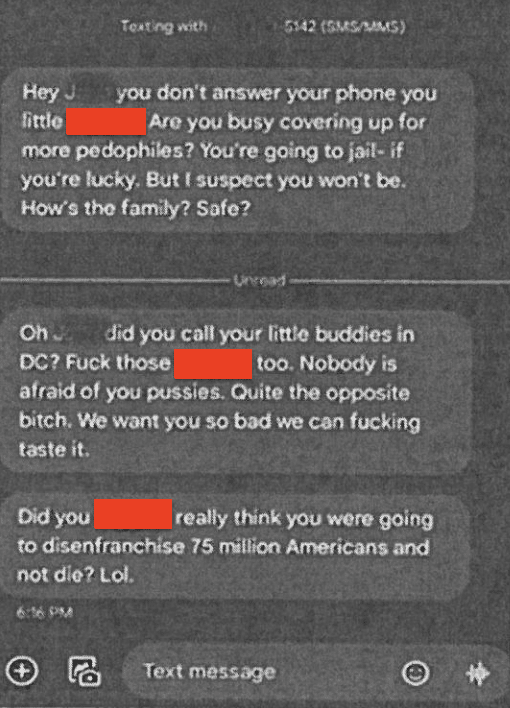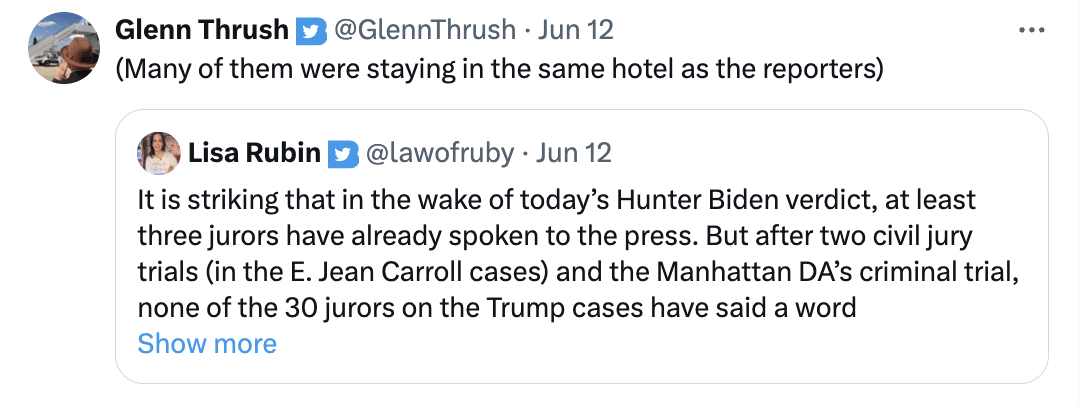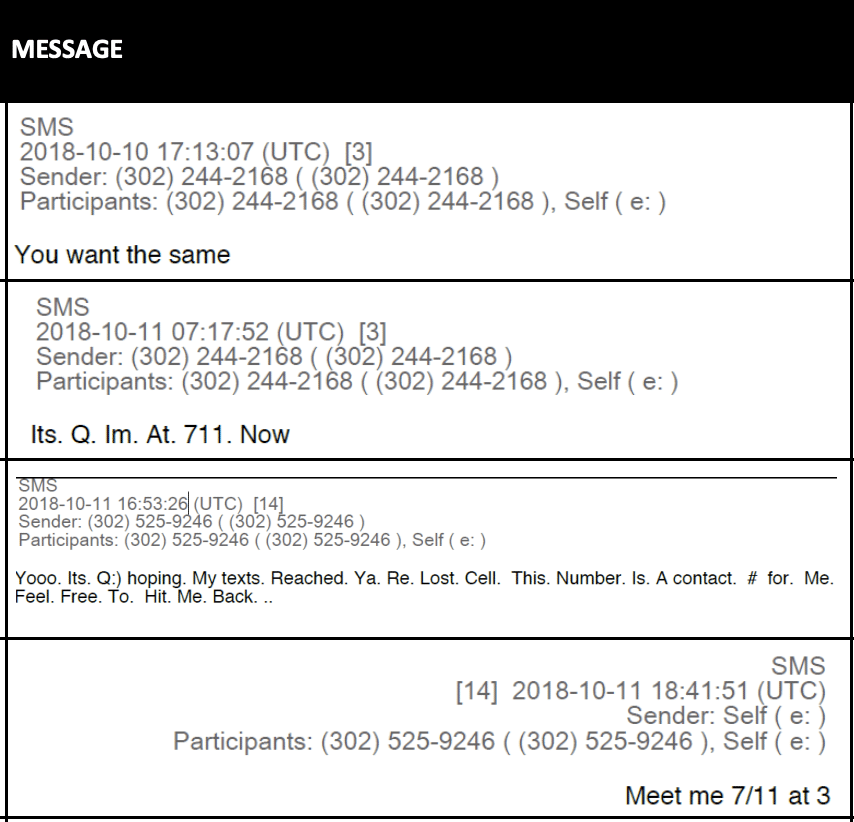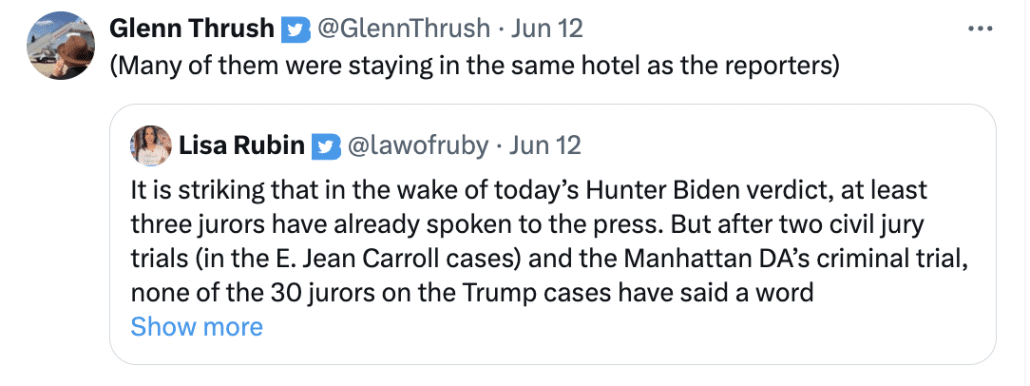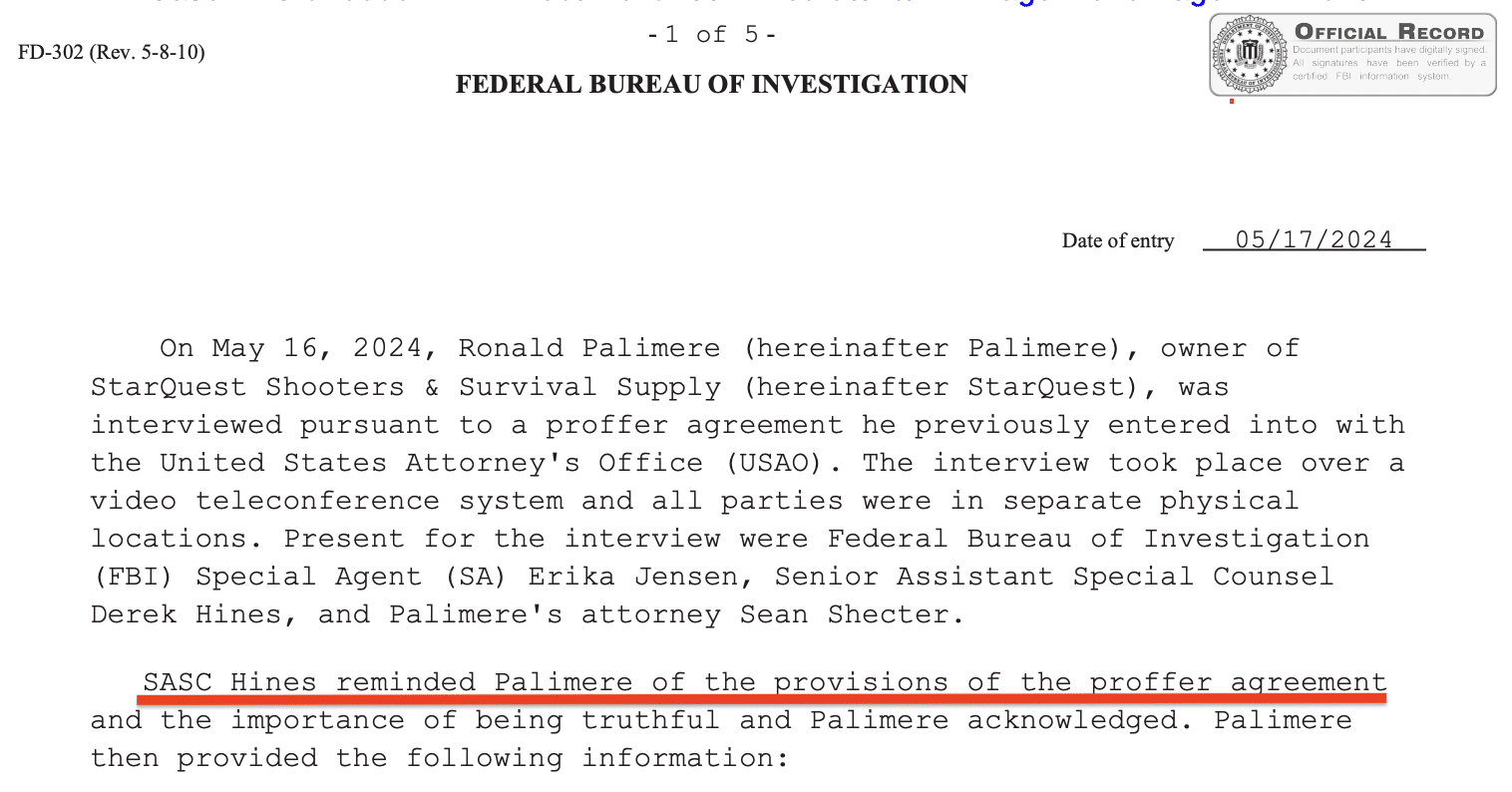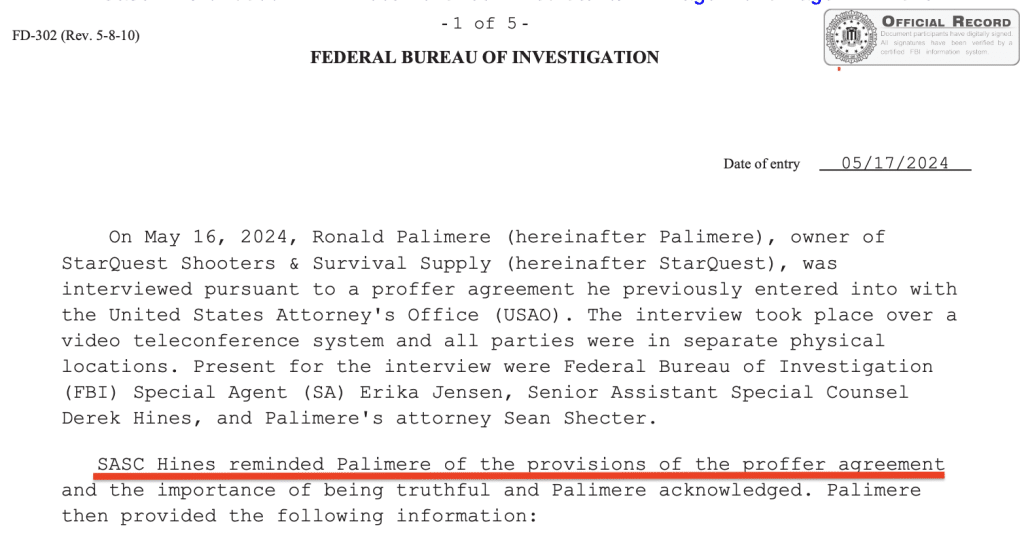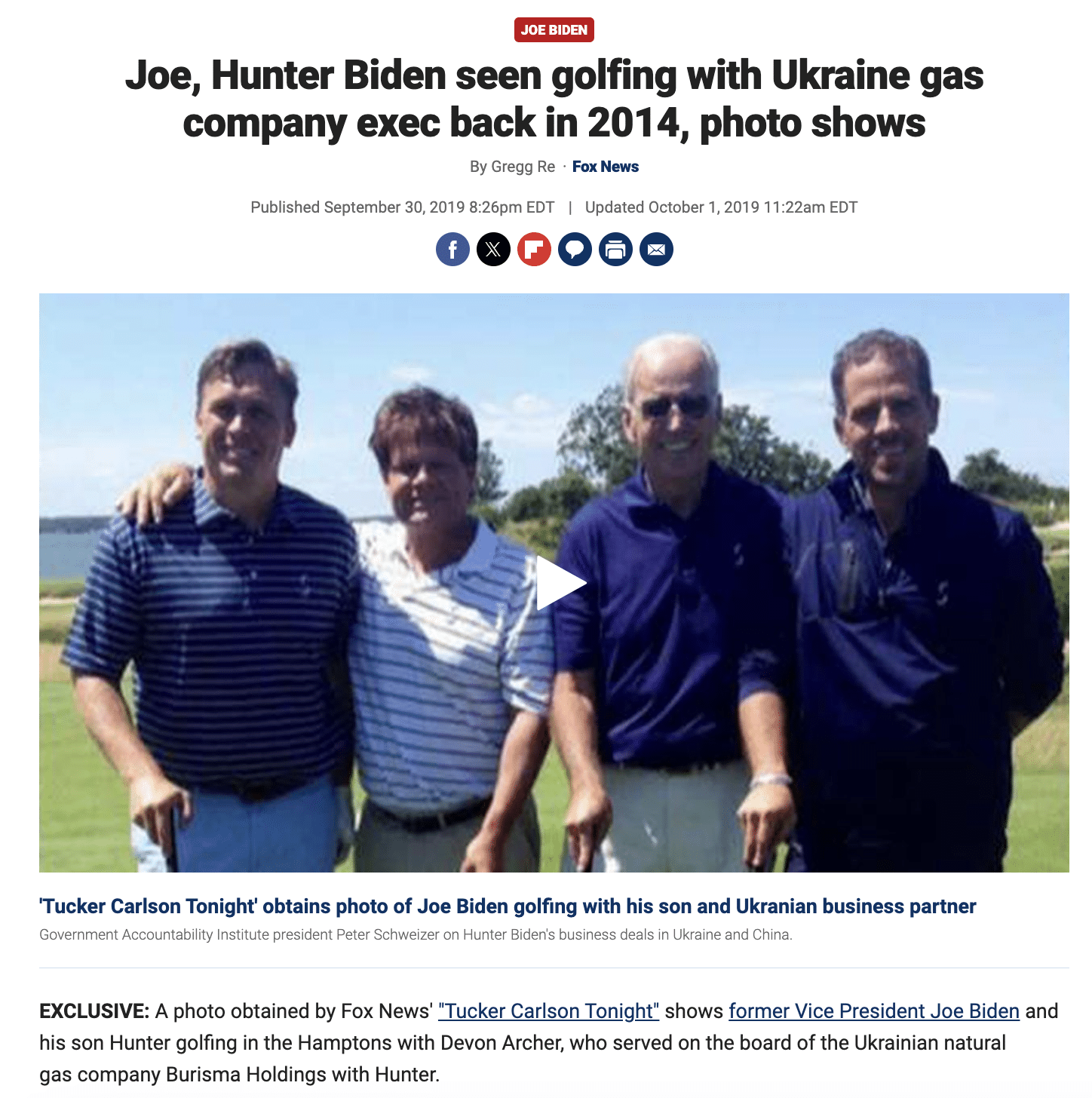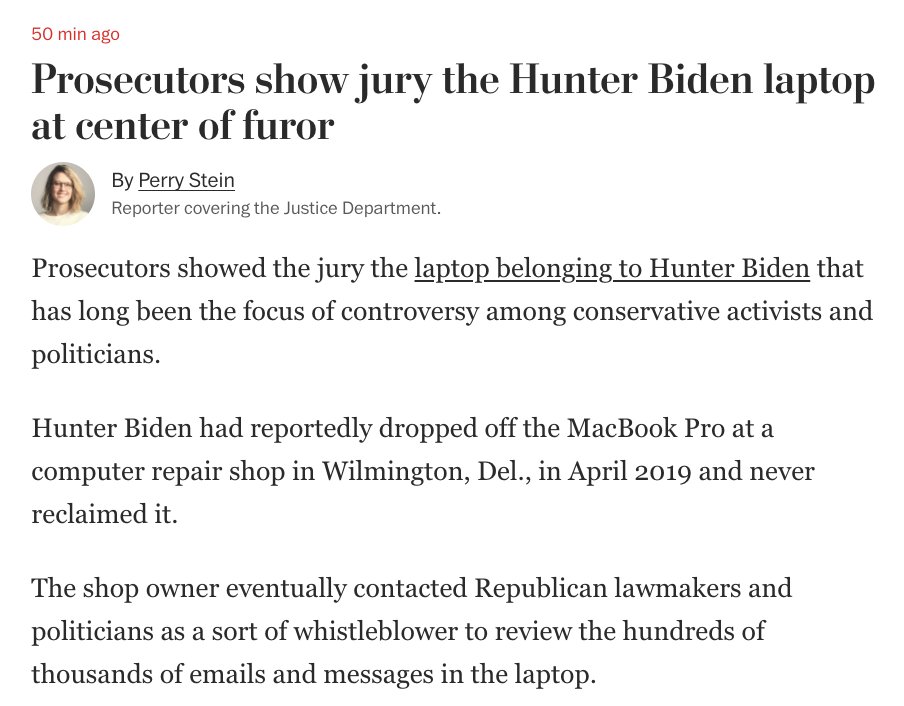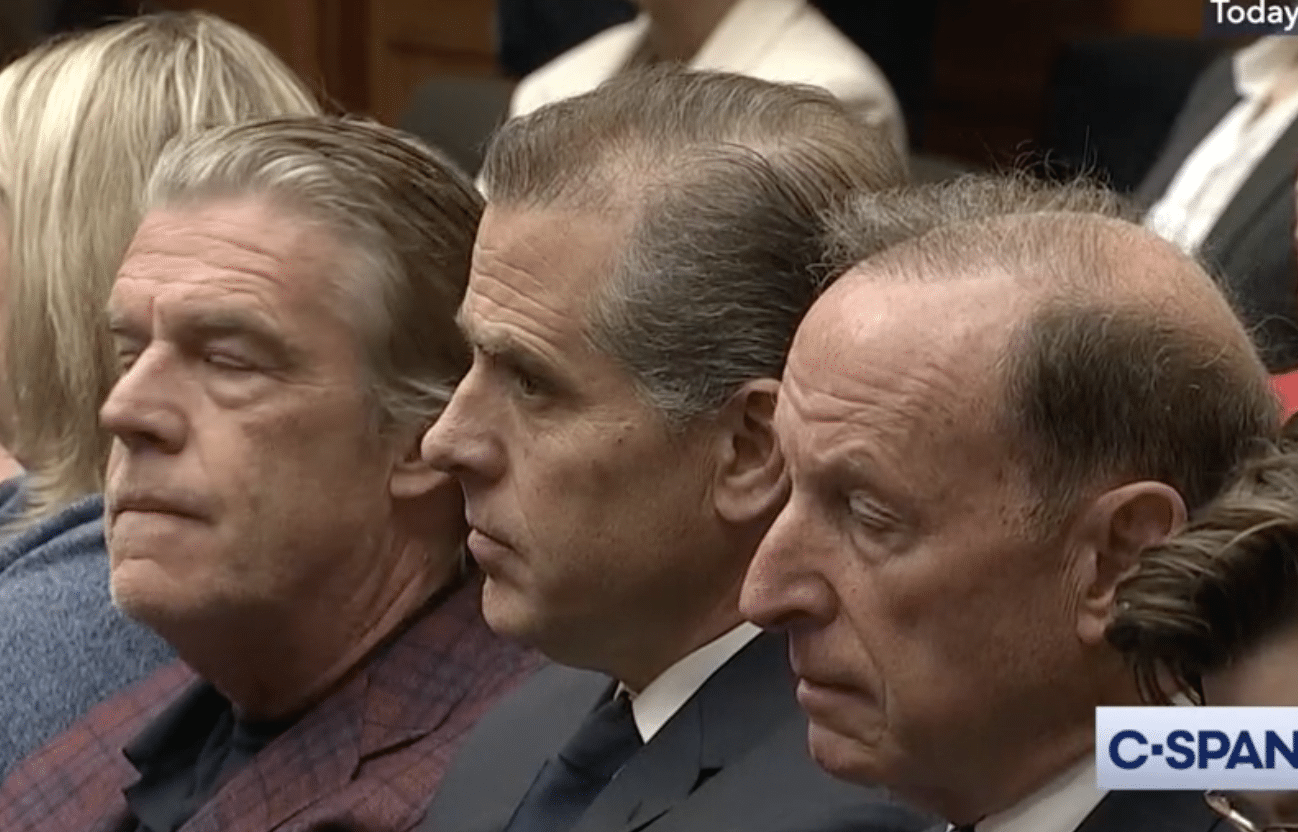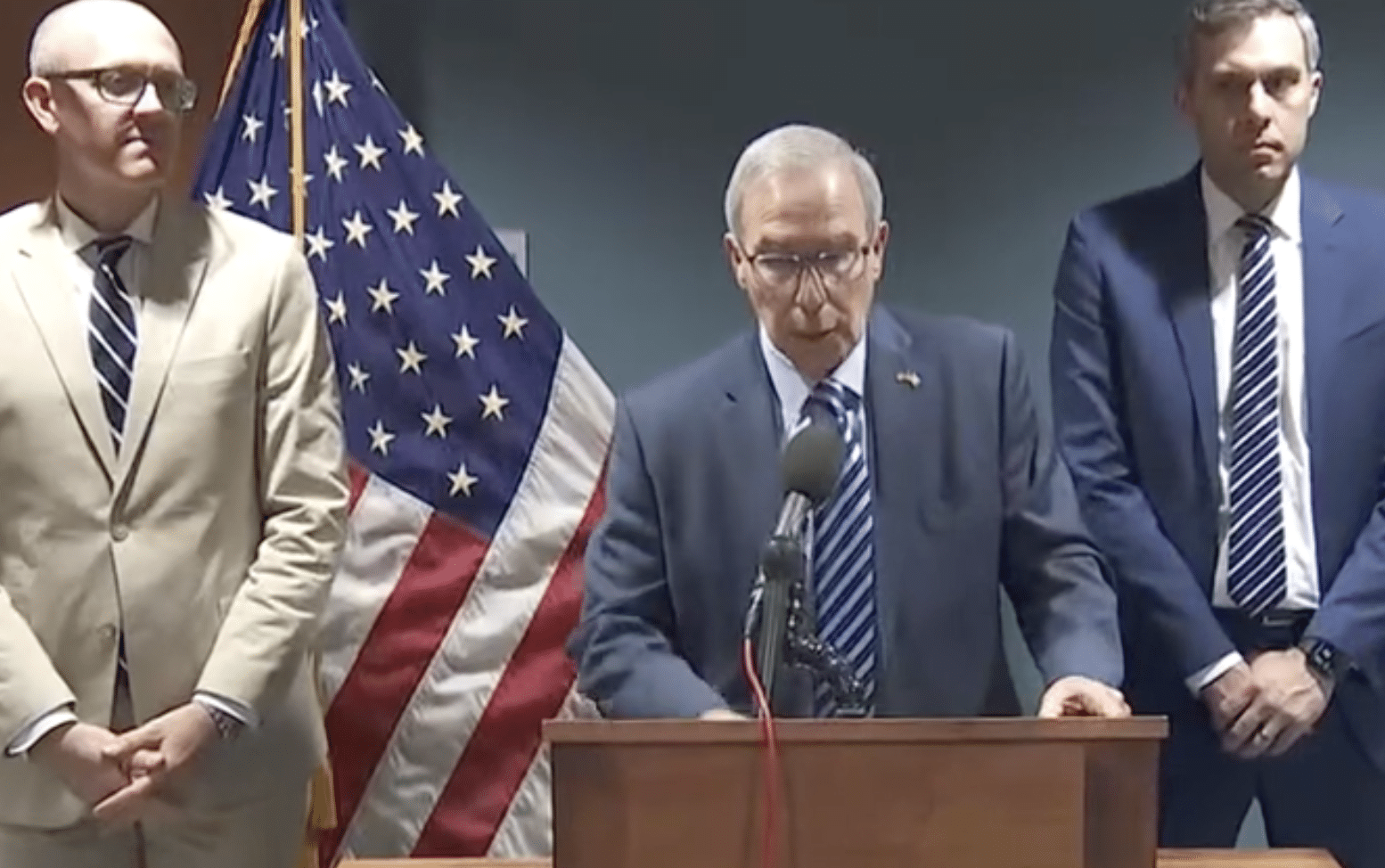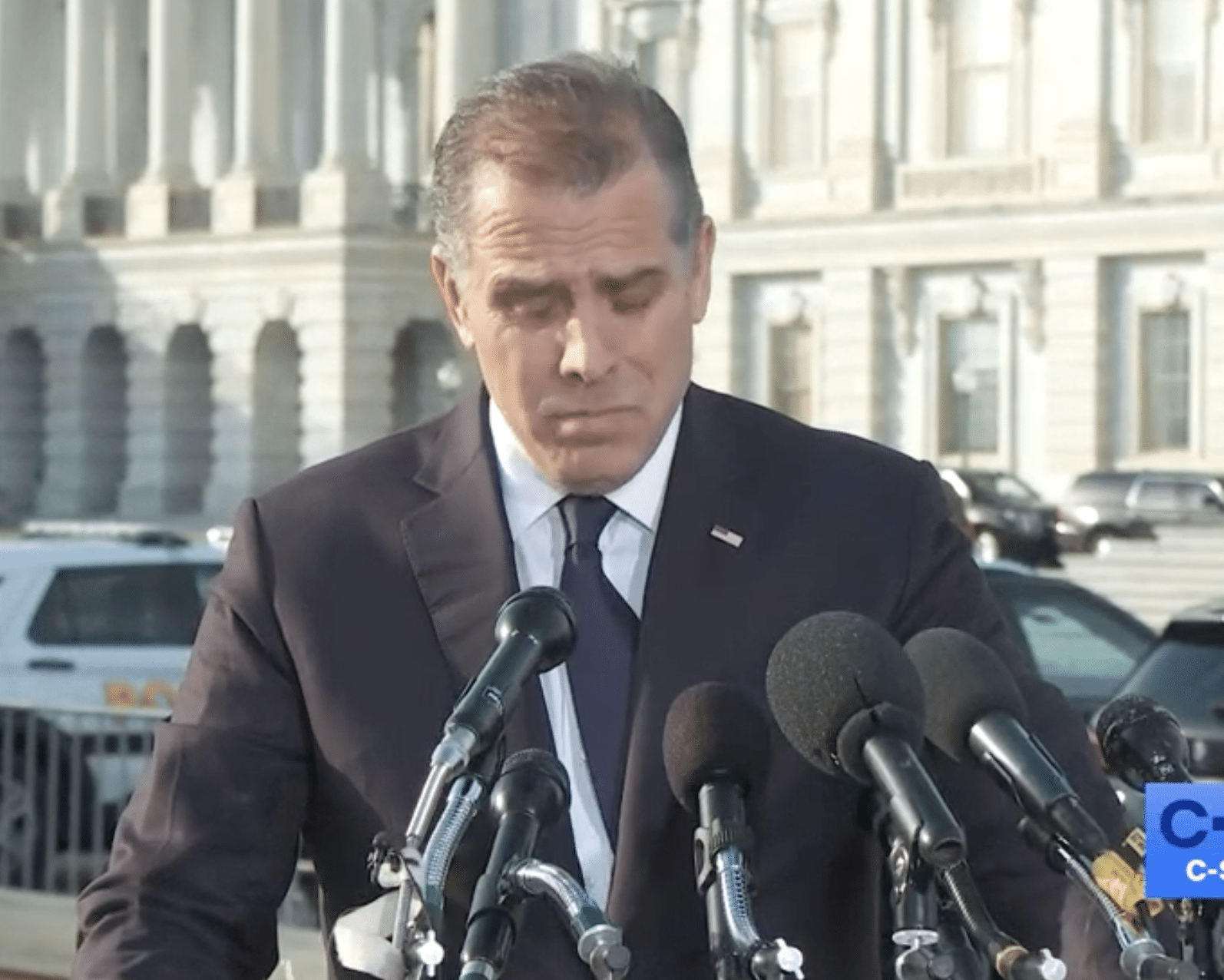The Threats that Hunter Biden’s Prosecutors Pretended Didn’t Exist Continue Unabated
Twice in the lead-up to Hunter Biden’s first trial, Leo Wise and Derek Hines pretended that threats elicited by the political firestorm surrounding the case didn’t exist.
When Abbe Lowell raised the threats David Weiss faced and cited a story describing Weiss’ testimony about the safety of his family, Derek Hines continued to insist that there was no way Trump — who attacked Weiss personally after the plea deal was docketed — could have influenced the case (before Judge Noreika, prosecutors had claimed to be incompetent to find the offending Trump posts on Truth Social).
If the statements by politicians prior to the hearing truly influenced the prosecution in the way the defendant claims they did, why did the government sign the agreements and present them at the hearing? Second, to state an obvious fact that the defendant continues to ignore, former President Trump is not the President of the United States. The defendant fails to explain how President Biden or the Attorney General, to whom the Special Counsel reports, or the Special Counsel himself, or his team of prosecutors, are acting at the direction of former President Trump or Congressional Republicans, or how this current Executive Branch approved allegedly discriminatory charges against the President’s son at the direction of former President Trump and Congressional Republicans. The defendant’s fictious [sic] narrative cannot overcome these two inescapable facts.
Then, in a March hearing on that motion as well as one arguing that the publicity campaign from the disgruntled IRS agents had unlawfully influenced the prosecution, Leo Wise claimed there’s no proof that the IRS agent campaign started the dominoes that led Weiss to renege on the plea deal.
MR. WISE: So I think the Defense’s problem is the same problem you identified in the last motion, which is they offer no proof. None. None whatsoever that there’s causation.
I wrote down what Mr. Lowell said. He said the agents “did the causation.” What does that mean?
Where’s the proof that these two guys going on TV had anything to do with what we did?
Well, they said, “Oh, they started the dominoes.”
What dominoes? Where is the proof of any of that?
Other than insulting us, where is the proof that anything these two agents — who I couldn’t have picked out of a lineup — had anything to do with our decision-making?
Wise said that as David Weiss looked on. While neither Jim Jordan nor DOJ have released the transcript proving it, according to Special Agent in Charge Thomas Sobocinski, both Sobocinski and Weiss acknowledged, after Gary Shapley first started his media tour, that the publicity campaign, “would have had it had an impact on our case,” and that impact had been doxing and pressure on members of the investigative team.
Q After it became public that Gary Shapley was going to come to Congress and he gave, I think, an interview on CBS in the at the end of May before his congressional testimony, who did you discuss that with?
A My team within Baltimore, probably folks within the Criminal Investigative Division. Definitely David Weiss.
Q And what was the nature of your conversation with David Weiss?
A I need to go off the record for a minute.
Mr. [Steve] Castor. Okay.
[Discussion held off the record.]
Mr. Sobocinski. Yeah. In general, it was concerns about how this was going to affect the ongoing case and were there issues we needed to take into at least from the FBI side to move forward.
BY MR. CASTOR:
Q After Shapley’s testimony became public in June, did you have any conversations with David Weiss about that?
A We acknowledged it, but it wasn’t I mean, we didn’t sit there with the transcript going back and forth. We both acknowledged that it was there and that it would have had it had an impact on our case.
Q Okay. Did any of your conversations with David Weiss, you know, have anything to do with like, can you believe what Shapley’s saying, this is totally 100 percent untrue?
A I don’t remember that level of it.
Q If it was
A I was more concerned about how this is affecting my employees. I now have FBI employees that names are out there. I have FBI employees and former FBI retired agents who’ve served for 20plus years whose parents are getting phone calls, whose photos with their girlfriends, who their children who are being followed. That is not something that we were prepared for, and I was concerned about having that continue or expand to other one of my employees. [my emphasis]
The transcripts in which David Weiss, Lesley Wolf, and Martin Estrada described the threats they and their families faced as a result of the pressure campaign from the IRS agents, House Republicans, and Trump have not been released. The outcome of any investigations into those threats likewise remains secret. Similarly, the efforts US Marshals made in response, especially, to the threats against Wolf and Estrada remains secret, though even Ken Dilanian described a special unit to investigate threats against FBI agents on these high profile investigations.
While Abbe Lowell did not focus on the threats elicited by the pressure campaign as much as he might have, to the extent he did, prosecutors simply pretended those threats didn’t exist.
And then, hours and days after the Hunter Biden verdict, the vicious conspiratorial threats went public with the arrest affidavit for Timothy Muller, a Trump supporter in Texas who, six hours after the verdict, called the FBI agent who picked up the laptop from John Paul Mac Isaac (and who may not have been involved in the case since 2021) and threatened him and his family.
Hey [j], you little cock-sucking pussy! You can run, but you can’t fucking hide. You covered up child pornography. You covered up [Hunter Biden] raping his own fucking neice, you fucking piece of fucking degenerate shit! So here’s how it’s gonna go: [Trump’s] gonna win the re-election. and then we’re gonna fucking go through the FBI and just start throwing you cock-suckers in jail. OR, you can steal another election, and then the guns will come out, and we’ll hunt you cock-suckers down and slaughter you like the traitorous dogs you are in your own fucking homes. In your won fucking beds. The last thing you’ll ever hear are the horrified shrieks of your widow and orphans. And then you know what we’re going to do? Then we’re going to string those fucking cock-suckers up. We’re going to slaughter your whole fucking family, you fucking pedophile! It’s like THAT now. So choose. Jail? Or getting strung up and lynched like the fucking traitor you are. That’s what happens when you cover up for fucking pedophiles, you piece of fucking shit!
Trump supporters are calling investigators and threatening to lynch them because they’re not prosecuting conspiracy theories ginned up by fellow Trump supporters.
When staffers asked David Weiss last November about these threats, he offered up the word, “intimidation” (then disclaimed understanding the motive for such threats).
Q Has this outsized attention led to increased attention on your office specifically?
A It’s led to increased attention for everyone who has touched the case. I think that’s correct.
Q Has the outsized attention given to this case resulted in threats and harassment against members of your office?
A Yes. Members of my office, agents assigned to the case, both from the IRS and from the FBI, doxing family members of members of my office. So, yeah, it’s part and parcel of this case.
Q Do you have concerns for the safety of individuals working in your office?
A Sure. I have safety concerns for everybody who has worked on the case, and we want to make sure that folks — yeah, folks are encouraged to do what they need to do with respect to the pursuit of justice generally and they not be intimidated in any way from performing their responsibilities.
[snip]
Q Do you have concerns for your safety or that of your family because of these threats?
A You know, I’m not — for myself, I’m not particularly concerned. Certainly I am concerned, as any parent or spouse would be for — yeah, for family, yep.
And at least as expressed by Muller, these threats are intimately tied (as exploitation of Rudy Giuliani’s copy of the laptop and Trump’s threats to replace DOJ officials with Jeffrey Clark were in the first place) to Trump’s false claims about the 2020 election, to Trump’s bid to become a dictator from day one.
And even as prosecutors serve up one after another humiliating trial during campaign season, they’re pretending the campaign against Hunter Biden isn’t all part of Trump’s bid for unaccountable power.

